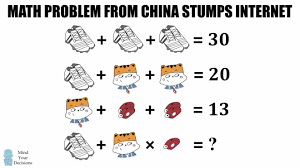 Since coins are my business, perhaps I should discuss Bitcoin.
Since coins are my business, perhaps I should discuss Bitcoin.
It’s a “cryptocurrency” or digital currency. Or supposed to be. Existing only in cyberspace but worth money of the more conventional sort. It has a whiff of underground rebellion, breaking free from the system of government-run money supply — and all its associated regulation. The idea is to make transactions untraceable by snooping government. Thus, Bitcoin payment has featured in some shady doings, notably the “Silk Road” venue for, mainly, illegal drug trades, and in ransomware attacks (where bad guys hack into your computer and lock you out unless you pay them).

This Satoshi Nakamoto denies it
How does Bitcoin actually work? Such a system’s main challenge is to prevent the equivalent of counterfeiting. People spending Bitcoins they don’t own, spending the same coin twice, etc. Bitcoin’s solution is what’s called a “blockchain,” invented by a mysterious, probably pseudonymous “Satoshi Nakamoto,” who has since vanished. A blockchain, or “distributed ledger” is a kind of database which isn’t centrally controlled, but accessible to everyone, such that when a new transaction is recorded, it cannot thereafter be altered. Thus every Bitcoin transaction ever occurring is indelibly encoded into the blockchain.

Bitcoin’s value started at nine cents on July 18, 2010. With much fluctuation, it topped $19,000 in December, 2017, then fell by about two-thirds.
That huge run-up in value prompted numerous copycats to jump in with their own “cryptocurrencies,” introduced via “initial coin offerings” (ICOs), mimicking “initial public offerings” for securities. But they aren’t shares in a business or promises to pay (like bonds). They are only worth . . . well, what the market decides they are worth. Not much, it often turns out.

Anyhow, that ready universal acceptance is what makes a currency a currency; and cyptocurrencies singularly fail that test. A currency must also be a store of value, and the wild fluctuations in cryptocurrency prices fail that too. Nobody wants to accept a currency that could lose half its value in a short time. (Of course, this does happen occasionally with national currencies, like Venezuela’s right now — a huge economic disaster.)
Add to that the lack of what might be called consumer protections. The cryptocurrency world is rife with fraud and sharp practice. Most ICOs are really nothing more than scams.
A lot of people made a lot of money on Bitcoin; a lot of people lost their shirts. The reality is that Bitcoin has become not a currency but, mainly, an object of speculation, which is not at all what “Satoshi Nakamoto” had in mind. And the fact is that Bitcoin, after all, has no objective value that can be ascertained. The mining process is costly, but that expenditure does not somehow confer intrinsic value on the results.

Indeed, why it should have any value at all remains a salient question.
Advertisements